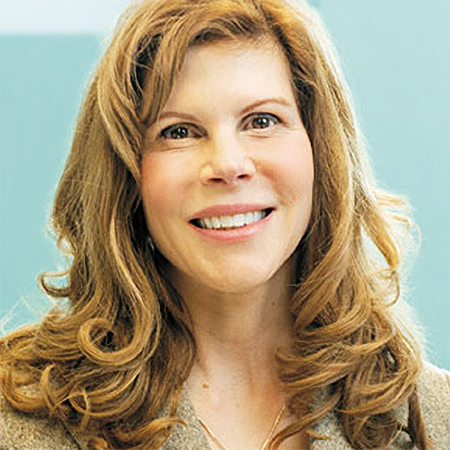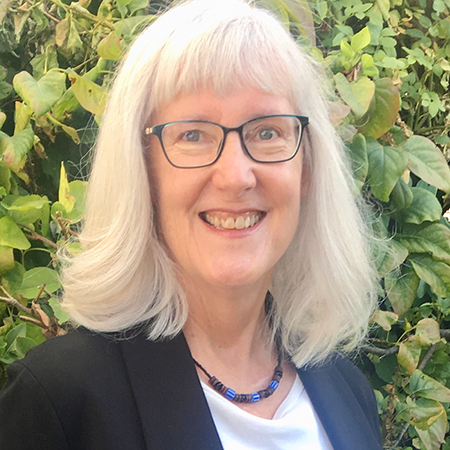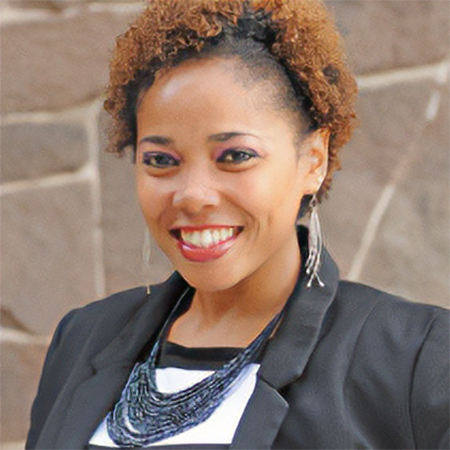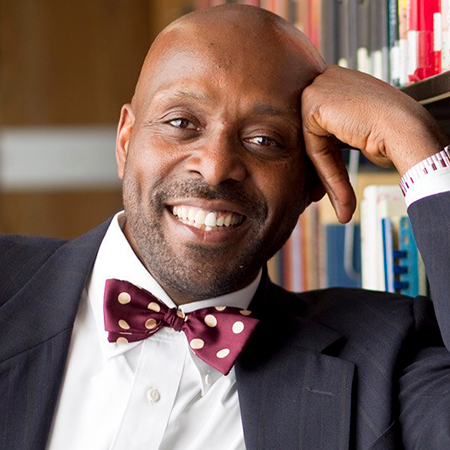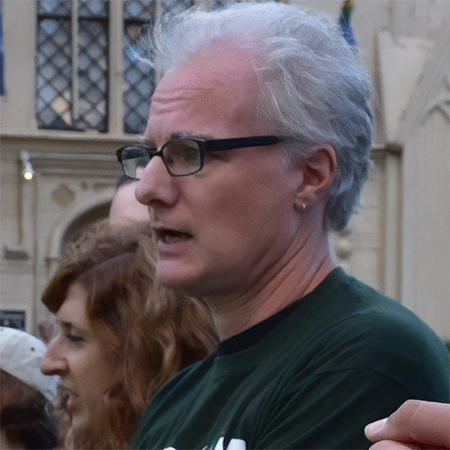
Identity & Diversity
The role identity plays in your personal and professional worlds only grows as you explore the world and different career paths.
This concentration uses identity as a category of analysis and as subject matter, examining how its social construction reflects and determines differentials of power and opportunity. Taking an in-depth look at diversity studies, you will analyze identity groups as social agents whose biological, socialized identities, and experiences are shaped by—and help shape—systems of gender, race, ethnicity, socio-economic class, sexuality, and national power. Diversity, equity, inclusion, and belonging remain the undercurrent across these deeper analyses.
Where the Identity & Diversity Concentration Will Take You
The indentity and diversity studies concentration is interested, above all, in analyzing the changing status of various identities over time and space. You will develop critical thinking skills as well as a deeper understanding of yourself and your place in the world. That leads to better communication; management; diversity, equity, and inclusion (DEI) education; and general people skills, setting you up to be a good teammate, leader, and manager.
The analytical, collaboration, and reflective thinking skills you develop help prepare you for careers in all fields, but especially consulting, diversity and inclusion, leadership, primary and higher education, healthcare, hospitality, and the arts. Ideally, because you will have an understanding of diversity, equity, inclusion, and belonging, and how shifts in the world can affect a variety of social groups, you have the skills to pivot industries during a crisis, shift your career goals with ease, and make tough, informed decisions that will benefit your place of work.
What You Will Study in Your Identity & Diversity Courses
While pursuing the identity and diversity concentration, students take two courses from a required list that includes courses that span the liberal arts and sciences. Students then supplement with two courses taken from a more expansive list of elective courses that cover identity studies, racial studies, identity research, and more.
Required Courses
Some of the required courses include:
Race and racial injustice and Indigenous people's claims and experience of marginalization shape political, social, economic, and cultural life. This course seeks to raise questions about the history of race as a social and political construct. Learn about topics such as whiteness as a political identity, the Black radical tradition, the model-minority myth, racial capitalism, intersectionality, queer theory, and many others.
Explore "extremism" through the formation of dangerous sects: i.e. underground movements, secret societies, forbidden associations, cult gatherings, urban gangs, martial arts orders, outlawed artistic circles, rebel cadres, and terrorist units. You will use contemporary literary works from around the world to examine the way in which these dangerous, hidden alliances experiment with ideas of concealment, seduction, power, strangeness, and sacrifice in order to create antagonistic counter-currents to everyday society.
Understand, explore, and analyze the linkages between gender and the environment. Using multiple case studies (fashion, food, waste, illegal wildlife trade, climate change etc.), the course will focus on three core themes:
- foundational concepts and theories of gender as they relate to the environment;
- the inequities and power dynamics associated with environmental challenges;
- knowledge and tools to mainstream gender and create effective change.
Food has been at the center of civil rights movements for centuries. The course looks at the organizations and individuals who helped various activists continue to march and advance their goals for progressive change and self-determination through food distribution, production, and cooking. The course also looks at movements to end discrimination in the restaurant industry for customers and would-be employees.
Examine challenges to international human rights law from military and technological developments, mass migration, and climate change, paying special attention to the role of art, literature, and film in addressing these challenges. In this course, you begin with philosophical, political, and legal definitions of human rights before moving to specific cases related to the impacts and legacies of imperialism and the resurgence of nationalism and white supremacy.
Elective Courses
Some of the elective courses include:
Autobiography as a literary genre has its roots in a person's desire for expression and meaning. As its writers explain themselves to the world, they explain the world to themselves, imposing on it their views and causes. Explore how humans use autobiography to demonstrate how history is made in words, and how others make sense of their own lives.
Labor propels economies around the globe. Examine a range of labor market topics such as human capital investment, wage determination and inequality, the impact of robotics and artificial intelligence on employment, the choice between work and household production, the effect of unions on the labor market, labor mobility and migration, labor market discrimination, and the effects of taxation, regulation, unemployment insurance, and other government policies on labor market outcomes.
Examine the interactive relationships among gender, cultural/social institutions, and individuals in contemporary American society. You will explore gender roles and resulting power inequities in contexts such as families, the music industry, conceptions of both race and sexuality, and novels. Equally important, you will also analyze how the behaviors of individuals reflect, sustain, and sometimes alter social conceptions of gender.
Discover how musical genres transcend global barriers—and also what gets lost in translation in this course that explores how societal forces like colonization and technology play a role in the development, appreciation, and business of music. This is a broad topic, which covers how music addresses concerns of authenticity, hybridity, cultural imperialism, nationalism, personal identity, censorship, political protest, ownership, and appropriation. Ultimately, you leave class with a deeper understanding of what music means and the role it plays in your life.
Sociology explains human behavior in terms of group activities. The solidarity of a social group allows group members to work cooperatively towards common goals. But the dark side of group solidarity is that it often leads members to feel hostility towards individuals who are not a part of the group and for non-members to experience feelings of resentment towards the group and its members. This course examines the relationship between group solidarity, resource scarcity, and the formation of social identity in everyday life.
Analyze the intersecting roles of the family, culture, education, authority, gender, race, social class, ideology, economic commensuration, and nation of origin in the process of health. This course exercises the sociological imagination in understanding how health, illness, and healthcare are socially constructed. By examining both health and health systems, you will gain an understanding of how an individual's health both shapes their navigation through society and is affected by the society they navigate.
Explore the changing and diverse portrayals of cities and urban life in western literature from the earliest days of industrialization to the present. This course ponders questions such as: What does it mean to be an urban dweller? How does a city shape its residents’ identity, and how do its residents influence a city’s development? Where does one’s sense of community overlap with—and diverge from—living in a particular city?
Explore more identity and diversity courses
You Will Learn From the Best
At Babson, our faculty are experts, innovators, and forward thinkers in their chosen fields. Here are just some professors sharing their expertise and support with our students in the identity and diversity program.
Have Questions?
Faculty Contact: Mary Godwyn
Sponsoring Division: History & Society
